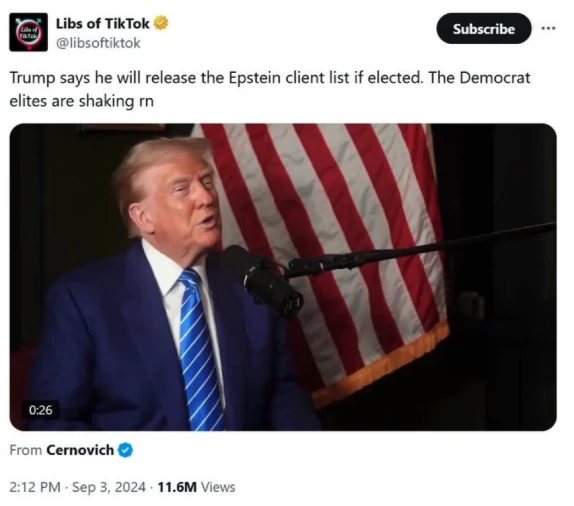The news that President Trump’s platform, Truth Social, is embedding prediction markets into its social media feeds has been met with an avalanche of outrage. Critics decry it as a further descent into political chicanery, dangerously blurring the line between the White House and a gambling venture.
I, too, am skeptical of the first family’s growing business dealings that span cryptocurrencies, telecommunications, drones and more. Yet of all the ways they have wielded political power for private gain, adding prediction markets to the far-right social media platform may, ironically, introduce a much-needed reality check to Trump’s most loyal supporters.
What should you trade on Truth Predict? Take a screenshot to find out. pic.twitter.com/wX52cXY6Tl
— Crypto.com (@cryptocom) October 28, 2025
In fact, if similar platforms follow suit, prediction markets might succeed where years of content moderation efforts failed: by creating a mechanism that objectively fact-checks misinformation and imposes real costs for being wrong.
Social media echo chambers
Our digital town squares have turned into tribal cul-de-sacs, polluting our discourse and drowning the facts. Truth Social functions as a conservative echo chamber; Bluesky, for its part, has formed its own partisan gravity wells. In these homogeneous feeds, users rarely encounter credible external signals that contradict prevailing groupthink. Misinformation, disinformation, and outlandish conspiracies spread frictionlessly. Truth is irrelevant; being loud, confident and loyal is rewarded with likes and shares.
This crisis is not new. In 2017, far before Trump Corp. launched Truth Social and Elon Musk took over Twitter, a poll of experts told BBC Future Now that “the breakdown of trusted information sources” was one of the leading challenges of the 21st century.
The year before, “post-truth” was Oxford Dictionaries’ word of the year, describing a time when public opinion is shaped far more by appeals to emotion and personal belief than by objective facts.
At the time, Wired magazine co-founder Kevin Kelly described the predicament:
“Truth is no longer dictated by authorities, but is networked by peers. For every fact there is a counterfact and all these counterfacts and facts look identical online, which is confusing to most people.”
Nearly a decade later, our information ecosystem has only become more fragmented. The challenge remains unsolved, but prediction markets may offer an unexpected remedy.
Prediction market antidotes
“With Truth Predict, we’re democratizing information and empowering everyday Americans to harness the wisdom of the crowd, turning free speech into actionable foresight,” Trump Media Corp. Chairman and CEO Devin Nunez said in a company press release.
It’s easy to scoff at the romanticized description of prediction markets as “truth sources” or “oracles” that “democratize information” when sports event contracts generate a bulk of trading volume and trivial mention markets are prioritized by the top exchanges.
But Nunez has a point.
When encountering prediction markets, users see two things: first, an objective forecast generated by the wisdom of the crowd; second, an opportunity — a challenge — to make money if they believe the forecast is wrong.
For example, imagine a Truth Social post that confidently says the president will balance the budget alongside a prediction market for the very question.
Or maybe it’s a subtle reminder that the president hasn’t released any new Epstein files.
A true believer is faced with the realization that those promises are anything but, or else they have a unique opportunity to profit. If they think they are smarter than the market, then they can bet on their conviction and see what happens.
Over time, consistently betting on sources that overpromise or misrepresent facts becomes expensive. Your wallet becomes as thin as the information you’ve trusted. More importantly, this mechanism cultivates epistemic humility, a quality sorely lacking in our current discourse.
Markets that change minds
If this sounds overly optimistic, there’s evidence that suggests the contrary. Academic research, including studies published in Nature Climate Change, has shown that participation in climate prediction markets doesn’t just produce accurate forecasts; it actually changes individual beliefs.
Participants from across the political spectrum who wagered money on climate outcomes (like hurricane frequency or temperature changes) became more concerned about global warming and more supportive of climate action. Why? Because the market forced them to confront reality, allowing them to “reflect their views, anonymously, through market economics rather than publicly stated opinions.”
Why conservative bias won’t break the market
But won’t Truth Social’s conservative userbase skew the markets?
Perhaps initially, but it will only be short-lived. Bias creates profit opportunities, which is why markets are self-correcting. With pooled liquidity between Truth Predict and Crypto.com’s exchange, sharp traders will quickly migrate to Crypto.com and take advantage of any politically motivated mispricing, correcting forecasts toward accuracy.
In liquid markets, bias is expensive and often unsustainable.
What’s next?
If prediction markets are landing on Truth Social, it’s only a matter of time before they find their place on other social media platforms. Earlier this summer, Polymarket inked a deal to become the official prediction market partner of X. The partnership will include “a suite of integrations and unique experiences,” much of which are still to be announced.
Before that, BetMGM and X signed an exclusive betting partnership, which was set to integrate BetMGM’s odds and branding onto X in 2024 but seemingly became dormant. If betting odds are destined for our social feeds, they should extend beyond sports to questions that actually matter — questions about policy, governance, and the future we’re collectively shaping.
The bar is low, but compared to the usual noise on our screens, prediction markets can only be an improvement.
They won’t solve our information crisis or curb polarization alone, but they will introduce something increasingly rare in our political discourse: a tax on bullshit.
And yes, that is a small step toward truth.


























